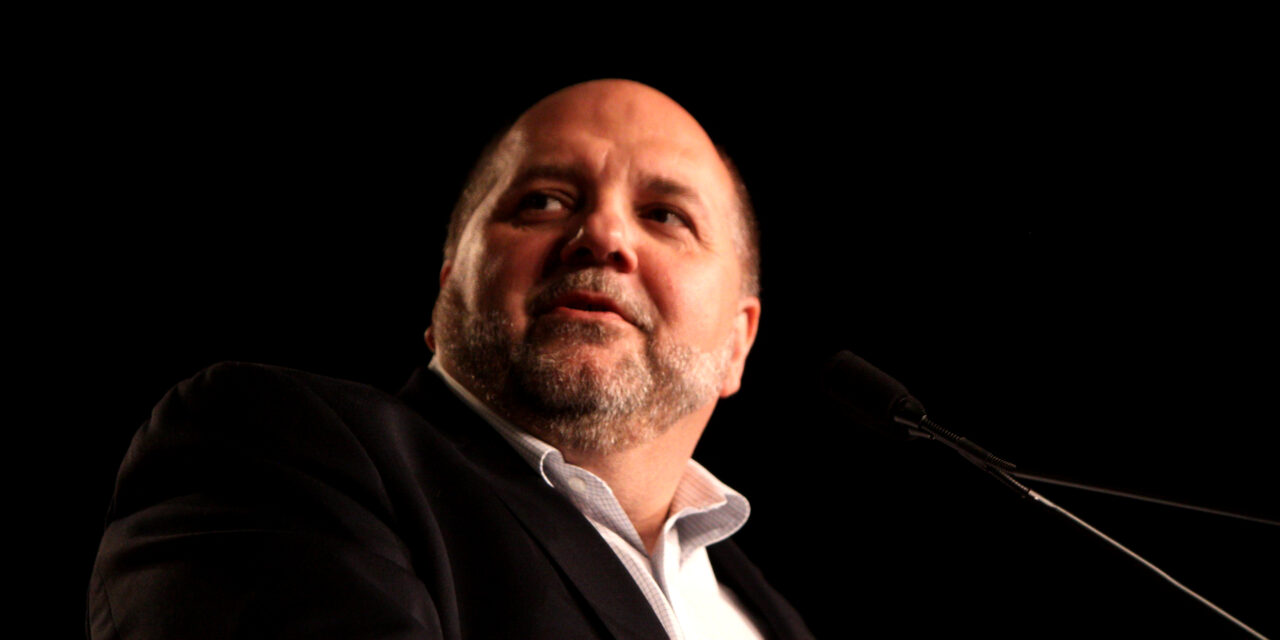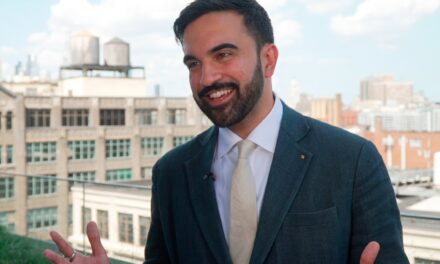I don’t trust Tony Fabrizio. He served as Donald Trump’s primary pollster in both his successful presidential runs, but that isn’t my problem with him. If anything, those notches in his belt give him credibility as someone who can gauge public opinion. My problem is that I believe he works to push Trump’s agenda. So, when he releases survey results to the public, I do not assume he’s publishing honest data.
In this case. he’s released data related to the Affordable Care Act, also known as Obamacare. Of course, he never uses either of those terms, which is probably a solid methodological decision. Republican voters are too reflexively opposed to Obamacare to give a meaningful opinion of how they feel about what it actually does.
Fabrizio is concerned with the income-adjusted health insurance premium tax credits that help people afford insurance on the individual market. These are available through the Affordable Care Act’s federal healthcare.gov website, as well as many state-run program websites.
The problem, as Fabrizio describes it, is that “without Congressional action, the tax credit expires this year.” In his survey, Fabrizio estimated this would cause the average premium to double, and his responses are based on that number, but the true average increase is probably closer to 75 percent.
The massive Medicaid cuts in the just-passed One Big Beautiful Bill are cynically designed not to begin until after the midterm elections, but people on the individual market will begin getting staggering premium hikes a year or more before November 2026. This is a big problem for the Republicans.
Fabrizio finds generic Republican candidates in the key House of Representatives battleground seats are trailing by three percent. As G. Elliott Morris tells us, there are two ways to look at that deficit. On the one hand, generic polls nearly a year and a half before an election are very unreliable. But, on the other hand, the party in power has historically lost a lot of ground in the lead-up to midterms. The Republicans will have to buck history to avoid seeing further slippage in their generic numbers.
When Fabrizio looks just at the impact in the battleground districts of letting the tax credits expire, he senses devastation. To begin with, when he focuses on voters most inclined to vote in the midterms, the generic disadvantage for the GOP grows from three percent to seven percent. So, that starting point is troubling. But it gets truly unmanageable if millions of people lose their health insurance.
While the 2024 outcome for these districts was even, the generic Republican is down 3-points among all registered voters. Among those most motivated to vote, an early indication of vote likelihood in the midterms, the Republican is down 7-points. If the Republican candidate lets the premium tax credit expire, the Republican trails the Democrat by 15-points.
Fabrizio shows that support for these tax credits is truly bipartisan. Trump voters support them by between +49 and +55, depending on how you ask the question. This shouldn’t be all that surprising because he finds that voters who presently use the individual market voted for Trump by four points.
So, Fabrizio’s solution is to not let these tax credits expire. To sweeten the deal for conservative opponents of Obamacare and subsidized health benefits, he argues that this will allow them to use “the individual market as a landing spot for working-age adults on Medicaid.”
In addition to extending the tax credit, Republicans have an opportunity to pull ahead of the Democrats in these districts leveraging the premium tax credit as a landing spot for working-aged Medicaid enrollees.
By a 50-point margin which varies little among Trump and Harris voters, voters support moving lower income working-age adults enrolled in Medicaid to a healthcare plan they would purchase directly, using a tax credit that allows them to afford the premium.
Now, you might be asking this question:
Do people whose income is between 100 and 138 percent of the poverty line have a choice of eligibility between Medicaid and premium tax credits?
Here’s your answer:
No. People who are eligible for “minimum essential coverage” including most categories of Medicaid are not eligible for premium tax credits. People with incomes between 100 and 138 percent of the poverty line who are determined eligible for Medicaid would thus not be eligible for premium tax credits.
There are probably exceptions in the ten states that did not expand Medicaid under the Affordable Care Act, but generally Fabrizio’s idea won’t work. People who lose Medicaid coverage will not magically be eligible for premium tax credits even if those credits are extended. It appears that he’s suggesting that the Republicans change this. That would mean much higher subsidies and eligibility for credits for people with much lower incomes. He doesn’t estimate the cost of this, but it is presumably much cheaper to provide Medicaid than to help folks pay for private for-profit insurance plans.
For Republicans still smarting from the cost of the One Big Beautiful Bill, this would be very hard to stomach. It would certainly break promises the Trump administration made to fiscal hawks to secure their votes. But Fabrizio is very crafty in how he attempts to sell this idea. He never explains that he’s calling for a giant increase in Obamacare subsidies and more deficit spending. He never explains that he’d be making tax credits available to millions who are not currently eligible to receive them. He never explains that the Republican-led Congress would have to pass new legislation beyond just an extension of the tax credits to make this possible.
Instead, he focuses on the electoral peril if they don’t follow his advice, and he makes it sound like moving people off Medicaid will help their electoral prospects. This might be true after the midterms when the Medicaid cuts kick in, but it would be of limited political value in this election cycle because they’d be “fixing” a problem than has not yet occurred.
It appears that Fabrizio is sincere in trying to help the Republican retain control of Congress. And he appears to have sold Trump on this idea, probably by not telling him it involves extending and expanding Obamacare’s tax credits. But he’s being very deceptive to his target audience, which is congressional Republicans.
I don’t trust that his survey data is accurate because I don’t think this is an honest effort to arrive at the truth. But I do suspect that he’s correct that people hate the idea of letting the tax credits expire and that this will hurt the GOP in the midterms if they don’t address it. He probably goes too far when he argues that following his advice can turn a 15-point generic ballot deficit into a 6-point advantage, but he’s trying to be convincing.
Trump appears convinced. If he wasn’t, I don’t think these survey results would have gone public. But, as I said, Fabrizio probably avoided letting Trump know that this has anything to do with Obamacare.
Of course, the other client for a memo like this is private health insurance industry which would gain trillions over time from the shift of Medicaid dollars into their coffers.
Perhaps Fabrizio is really serving that master rather than Trump.







I support whatever hurts Republican election turnout in 2026 and 2028. People losing ACA subsidies, rural hospitals that only serve Republicans closing, localized meteors, whatever.
It’s DEFCON 1 and non-fascists are on the retreat.
I don’t think it’s a matter of wanting people to die for lack of health care. It’s wanting the GOP to take the blame for it since they are responsible for it.
Whatever results in less Republican votes. Former Republican voters not being stupid? OK. Republican voters who self-disenfranchise themselves? OK.
How can we as non-fascists cement the claim that wearing a seatbelt is woke?
Setting aside the moral issues, purely on pragmatic political grounds wishing for Republican voters to die for lack of health care (or for not wearing seat belts, etc.) isn’t very effective. Increased marginal death rates have a miniscule impact on voter turnout.
“I hope you die” is, generally speaking, poor political messaging both because it tends to alienate some percentage of otherwise persuadable voters, and because it’s almost entirely passive. (Though it’s certainly an understandable emotional reaction.)
My comment here isn’t political messaging and isn’t designed to be effective at anything political, because it’s a comment section on a blog.
Joking or making a flippant comment here is a way to deal with the fact that almost everyone who isn’t in the administrative branch of the Federal government has close to zero recourse to stop the actual fascism that is happening out in the open right now.
My hope that the fascists who want to imprison and murder people will die as soon as possible isn’t a strategy, it’s a hope. Because these fucking fascists will, if called upon, murder you in your sleep like any other nice polite liberal. Them remaining alive is a net negative on this country, the world, and your freedoms. And that isn’t hyperbole. It’s stark fact that might be hard for some people to come to terms with.
We “celebrate” WWII and the heroism that occurred because it resulted in dead fascists. I refuse to give up hoping for and celebrating every dead fascist everywhere at all times.
When I see stuff happening here, like what is outlined in the article linked below, I sometimes feel a little conflicted. But sadly, people have to understand and learn in difficult ways that elections matter. Trump is not the friend of rural people. The tiger is definitely going to eat their face.
“Trump requests 93% cut to Appalachian Regional Commission. Ohio would take a huge hit.”
https://ohiocapitaljournal.com/2025/07/15/trump-requests-93-cut-to-appalachian-regional-commission-ohio-would-take-a-huge-hit/